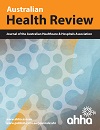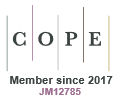AH25136Is a wholistic quality improvement program to reduce hospital-acquired complications economically viable in an Australian local health service?
What is known about the topic? There has been increasing evidence demonstrating the adverse impact of hospital-acquired complications (HACs) on patient outcomes and associated financial loss. HACs are significantly preventable. What does this paper add? This study bridges a knowledge gap in the literature, particularly in the Australian context, describing the practical implementation, outcomes, and evaluation of a wholistic program specifically designed to systematically reduce preventable HACs at the hospital level. What are the implications for practitioners? Financially viable opportunities are available to hospitals to mitigate clinical risks, reduce preventable patient harm, and minimise unnecessary operational costs.





